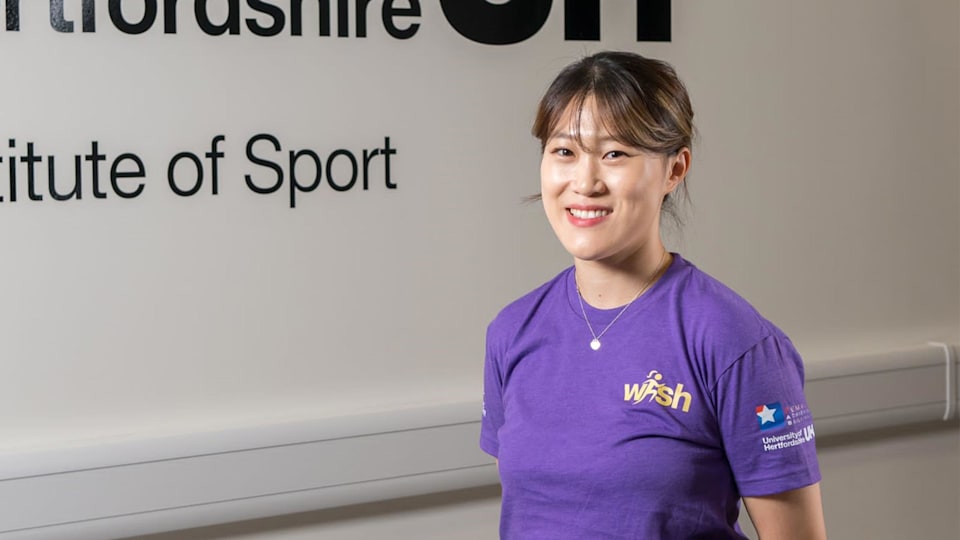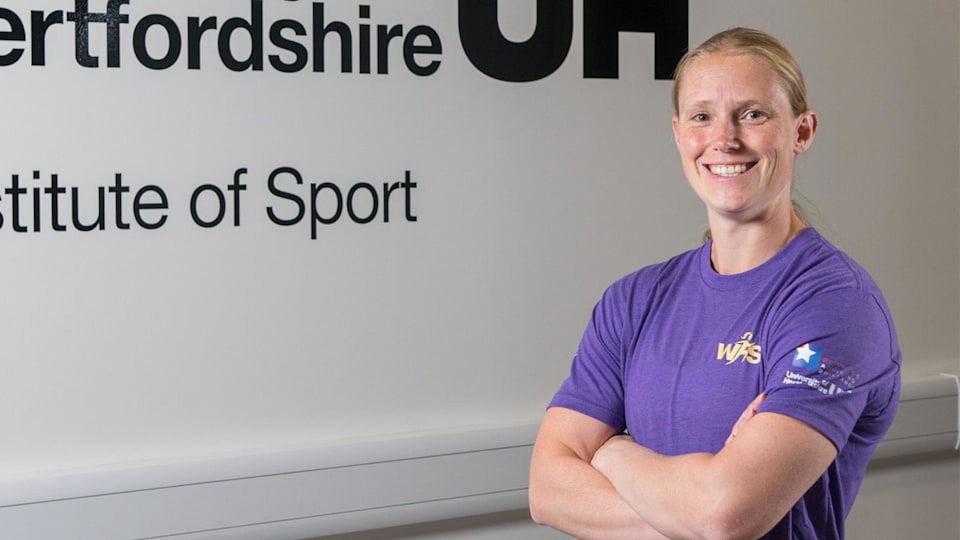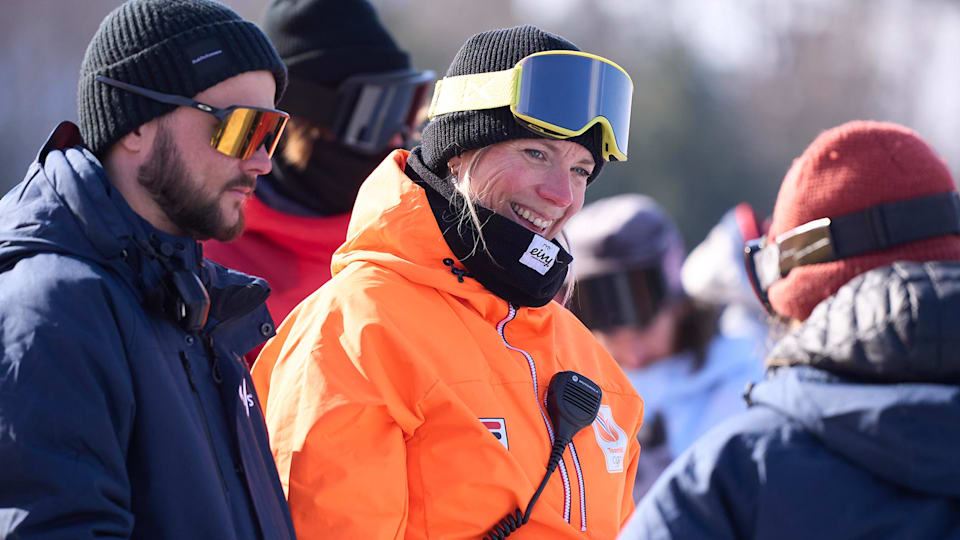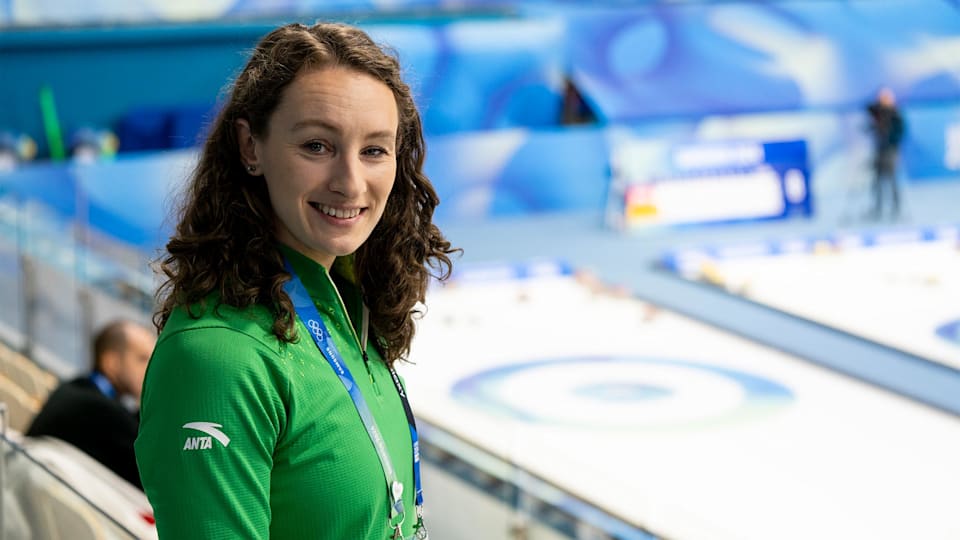New generation of female coaches at Gangwon 2024

International Olympic Committee
29 January 2024 – The International Olympic Committee (IOC)’s Women in Sport High-performance pathway programme (WISH) empowers female coaches to reach the elite level. Skeleton coaches Mun Ra-young (KOR) and Joska Le Conté (NED), snowboard coach Andrea Bednas (NED), and Olympic curling champion Jennifer Dodds (GBR), who all participated in the programme, are paving the way for future generations of coaches at the Youth Olympic Games (YOG) Gangwon 2024.
When skeleton racers Phonchanan Pongsak and Maturada Kanram slid head-first down the icy track at the Alpensia Sliding Centre, they made history as the first athletes from Thailand to compete in an Olympic skeleton event. And cheering them on from the side of the track was another trailblazer who knows all about what it takes to break down barriers.
Korean Mun Ra-young has guided them on their journey to the YOG as head coach of the Thai skeleton team. She became one of the few female coaches on the elite skeleton circuit, having halted her own racing career after missing out on a place on the Republic of Korea team for the Olympic Winter Games PyeongChang 2018.
“After I failed to make it to the Olympic Games, I had a really tough time,” she reveals. “I just wanted to leave this sport because mentally I was broken. So that’s why I retired. There were no women coaches in Korea, so it wasn’t something I considered doing, but just one year after retiring, my national team head coach called me to work with the junior team for the Youth Olympic Games Lausanne 2020, and after that I began working with Thailand.”
Backed by USD 1 million in Olympic Solidarity funding, WISH will benefit approximately 100 women over four years, helping participants develop their leadership skills, confidence and careers and giving them one-to-one leadership mentoring, plus ongoing support from a sport-specific mentor.
Mun has been supported on her coaching journey as part of WISH programme, endorsed by the Korean Sport & Olympic Committee, and credits the programme for giving her the confidence and self-belief to succeed as the first female skeleton coach from the Republic of Korea.
“Before the WISH programme, I didn’t really feel like I was ready to coach at this level,” she says. “But one of my mentors on the programme is a sports psychologist, and she really helped me improve my mindset.”
After paving the way, Mun now hopes that others can follow in her footsteps, helping to redress the under-representation of women among elite skeleton coaches.
“I was the first Korean bobsleigh and skeleton athlete to benefit from this international programme,” she says. “I hope another Korean or Asian coach, or retired athlete, can do this same programme and then we can create a better and more equal sports environment.”

“Looking back, you realise all the coaches were men”
Mun is not the only coach at Gangwon 2024 to have benefited from the WISH programme. Former skeleton racer Joska Le Conté, who competed at the World Cup level and finished sixth at the 2016 European Championships, is at the YOG as technical director of the Dutch National Bobsleigh and Skeleton Federation, having been part of the same WISH intake as Mun.
She admits she only became aware of the gender imbalance at the elite coaching level when she moved into coaching after retirement. “When I was competing, I never really noticed that it was just men,” she says. “But when you look back, you realise all the coaches were male and actually the first year I started coaching on the World Cup, I was the only female coach.”
Le Conté believes that the programme has already played an important role in her coaching journey. “It’s always good to develop yourself,” she says.
“Working with the mentors has been really interesting, and it’s been really cool to meet all the other coaches, especially because they are from different sports. It’s nice to talk to them and see what the differences are, but also what the similarities are, so you can learn from each other.”
Joska Le Conté – Technical director of the Dutch National Bobsleigh and Skeleton Federation

“You’re stronger than you think you are”
Andrea Bednas also speaks highly of her experiences on the WISH programme. She is at the YOG as coach to Dutch snowboarders Sam van Lieshout and Katja Dutu, and says the programme has helped her deal with situations like she has faced in Gangwon, where she finds herself considerably outnumbered among the coaching ranks on the slopes.
“In freestyle snowboarding, there’s not that many female coaches, and if you look here now, I am actually the only one,” she reveals.
“It’s kind of intimidating to see that it’s only males. You have to be able to stand up for yourself, and they really teach that in the programme, that you’re stronger than you think you are.”
Andrea Bednas – Coach to Dutch snowboarders

“It’s already given me so much more confidence”
Elsewhere in Gangwon, Olympic curling champion Jennifer Dodds is also putting into practice what she has learnt on the WISH programme, as she helps to guide the next generation by sharing the experience and knowledge she has gained throughout her sporting career as one of the Athlete Role Model (ARMs) at the YOG.
And the Beijing 2022 gold medallist believes that being part of the WISH programme has helped give her the self-belief to take on that mentorship role.
“I’m still at the beginning of my journey with the WISH programme, but it’s already given me so much more confidence,” she says. “As a relatively new coach, it’s good to know you’re doing the right things and you’re on the right track. It’s just really good for your confidence and it’s a huge help for what I’m doing here.
“With the young athletes, I can talk about my own experiences as an athlete and help guide them. And with coaching, that’s essentially what you’re doing too.”
Jennifer Dodds – Athlete Role Model at the YOG

Like Mun, Le Conté and Bednas, Dodds has also seen the lack of female coaches at the elite level, but believes that change is beginning to happen, aided by initiatives like the WISH programme.
“When the Winter Games were here in 2018, I think only around 10 per cent of the coaches were women,” she says. “But looking around now, I think there’s at least six to eight female coaches sitting on the bench at the curling, so that’s already an improvement. Hopefully we can keep boosting that number, and I think programmes like WISH can definitely help with that.”
Learn more about the WISH programme and the IOC’s commitment to advancing gender equality here





